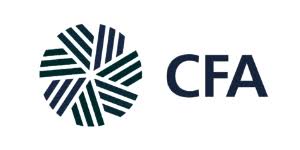How to Study Ethics CFA Level 1: Strategies, Tips & Study Plan
How to Study Ethics CFA Level 1: Strategies, Tips & Study Plan

Accounting
IntroductionThe CFA Level 1 Ethics section is a cornerstone of the CFA Program and one of the most heavily weighted areas of the exam. Mastering ethics is not only essential for passing the exam but also for building a strong foundation in professional conduct and integrity. While some candidates may underestimate this section due to its theoretical nature, Ethics can be the deciding factor in passing or failing the CFA Level 1 exam.
This article offers a detailed guide on how to study Ethics for CFA Level 1, including study techniques, key topics, and expert strategies to improve comprehension and retention.
What is the CFA Level 1 Ethics Section?
The Ethics section of the CFA Level 1 exam is part of the "Ethical and Professional Standards" topic area. It represents approximately 15–20% of the exam weight. This section evaluates candidates' understanding of the CFA Institute Code of Ethics and Standards of Professional Conduct, along with the Global Investment Performance Standards (GIPS).
The Ethics curriculum emphasizes real-world scenarios and decision-making frameworks that reflect common ethical challenges faced by investment professionals.
Why the Ethics Section Matters in CFA Level 1
The CFA Institute strongly emphasizes ethics because ethical behavior is foundational to the investment profession. Additionally, candidates who score poorly in Ethics may be penalized even if their total score is near the passing threshold.
The Ethics Adjustment: According to the CFA Institute, marginal candidates who perform well in the Ethics section may pass, while those who perform poorly may fail. This makes Ethics a high-impact area on your final result.
Key Topics Covered in CFA Level 1 Ethics
The Ethics section is based on two primary areas:
-
CFA Institute Code of Ethics and Standards of Professional Conduct
-
Professionalism
-
Integrity of capital markets
-
Duties to clients
-
Duties to employers
-
Investment analysis, recommendations, and actions
-
Conflicts of interest
-
Responsibilities as a CFA Institute member or CFA candidate
-
Global Investment Performance Standards (GIPS)
-
Requirements and recommendations
-
Composite construction
-
Verification process
-
Performance presentation and disclosures
Understanding these topics in-depth is critical, as the exam questions often present nuanced scenarios requiring ethical judgment and precise interpretation of the standards.
How to Study Ethics for CFA Level 1 Effectively
-
Start Early
Ethics is dense and requires consistent reading and reflection. Begin studying this section early in your CFA journey to allow sufficient time for understanding and application. -
Read the CFA Curriculum
While third-party providers are helpful, the CFA Institute curriculum is the most authoritative source. The Ethics readings contain example scenarios and explanations directly aligned with the exam format. -
Use Practice Questions Extensively
The best way to master Ethics is through practice. Focus on scenario-based questions that challenge you to apply the standards in different contexts. Pay close attention to the reasoning behind both correct and incorrect answers. -
Study Ethics Throughout Your Preparation
Do not leave Ethics to the end. Revisit the topic regularly—once every few weeks—to keep the content fresh in your mind and improve retention. -
Focus on the Language of the Standards
Ethics questions often hinge on subtle differences in wording. Familiarize yourself with the precise language used in the Code and Standards to interpret questions correctly. -
Create Summary Sheets
Summarize each standard, its key points, and common violations in your own words. This will make review easier in the final weeks before the exam. -
Review Ethics in the Final Weeks Before the Exam
Many candidates re-study Ethics in the last 2–3 weeks. This is a smart strategy since fresh recall and sharp judgment are needed on exam day. Include Ethics in your final review plan. -
Use CFA Institute’s Mock Exams and Topic Tests
Official mock exams and topic tests provided by the CFA Institute are some of the best practice resources available. They reflect the exact tone, structure, and difficulty of the actual exam.
Common Mistakes to Avoid When Studying Ethics
-
Relying solely on memorization: Ethics requires application, not just memory.
-
Ignoring the CFA Institute curriculum: Third-party summaries may not capture the nuances of the standards.
-
Skipping the GIPS readings: Although perceived as dry, GIPS represents a testable and important area.
-
Underestimating the Ethics section: Remember the Ethics Adjustment—it can determine your final result.
Recommended Study Timeline for Ethics
-
Months 1–2: Initial reading of the Code and Standards + create notes
-
Months 3–4: Begin answering practice questions (topic-specific)
-
Months 5–6: Full revision + CFA Institute mock exams and topic tests
-
Last 2 Weeks: Dedicated Ethics review and deep-dive into weak areas
Additional Resources for Ethics Preparation
-
CFA Institute Learning Ecosystem
-
CFA Curriculum Examples and Blue Boxes
-
AnalystPrep or Kaplan Schweser QBank (for practice questions)
-
YouTube channels with Ethics case walkthroughs
-
Study groups and discussion forums
Ethics and the CFA Candidate Mindset
Being a CFA candidate is not only about passing an exam—it’s about committing to a higher standard of professional integrity. Studying Ethics is not just an academic exercise; it reflects how you will conduct yourself in your career. Approach it with seriousness and intention.
The Ethics section in CFA Level 1 is a critical part of the exam that requires early attention, repeated exposure, and thoughtful application. Mastering the CFA Institute’s Code and Standards will not only increase your chances of passing but also help shape your professional identity as a future charterholder.
Remember, in a competitive exam like CFA, Ethics can be the factor that sets you apart. Study it consistently, use the right resources, and approach each scenario as if you were making a real-world ethical decision.
By building a strong foundation in Ethics, you prepare yourself not only for exam success but also for a trustworthy and impactful career in finance.
Related Articles
Explore Articles on Finance, Accounting, and Career Growth


